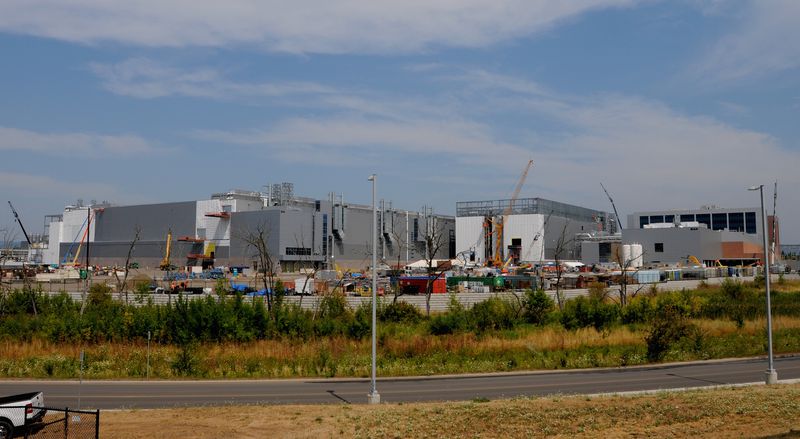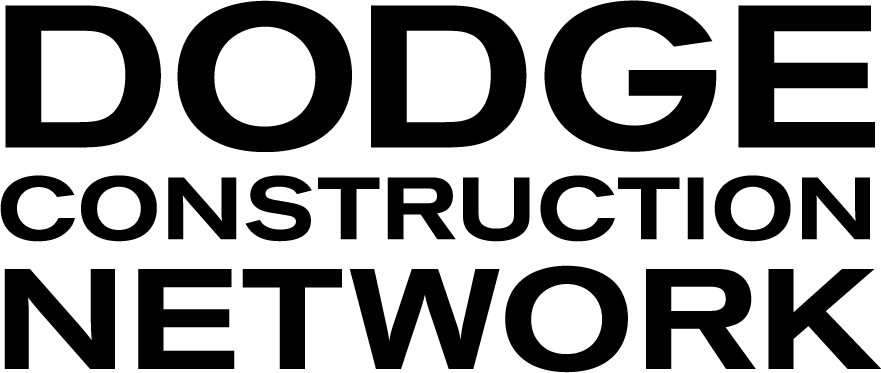Oregon’s construction industry weathering coronavirus so far, but dreading possible shutdown

(In this file photo, Intel’s D1X factory, under construction in Hillsboro (MARK GRAVES/OREGONIAN)LC- MARK GRAVES/THE OREGONIAN)
Israel Cruz had had enough. The foreman for a crew of nine electricians on an affordable housing job site in Northeast Portland had listened all week as the contractor preached about maintaining social distance and working safely, while doing little to change actual working conditions.
Tradesmen swarmed over the site in close contact. The hand sanitizer stations had been vandalized, he said. Soap dispensers were empty. There were six outhouses for 60 guys – hotbeds of traffic, touching and potential coronavirus contact.
The last straw came Friday, when Cruz said an obviously sick worker was allowed back on the job. Cruz and seven of his crew members walked off.
“They’re operating as normal, as if there is no hazard. I shouldn’t have to be put in a position of taking a layoff or working safely,” he said. Cruz submitted his experience to a legislative subcommittee on Friday that is addressing numerous coronavirus issues.
The situation illustrates the increased tension between workers’ safety and the constant pressure to maintain schedules in the construction industry. It also spotlights some of the risks at job sites large and small, where tradesmen come and go all day, often working in confined spaces and with an ethos that keeps them on the job.
“Our members don’t get sick pay,” said Lou Christian, business manager for UA Local 290 Plumbers and Steamfitters. “Unless you work, you don’t get paid, so they tend to have the mindset that they’re going to go to work unless they’re really sick.”
That’s a mindset that contractors claim they’re working hard to counter with a consistent message: If you or your family members have any symptoms, stay home. But as Cruz’s action demonstrates, compliance and enforcement varies from job to job, company to company.
So far, Oregon’s construction businesses and homebuilders say they’re weathering the coronavirus outbreak without much disruption. Jobs are moving forward., in some cases more slowly. Supply chains aren’t deeply disrupted yet. Regulators are still reviewing plans and inspecting jobs – sometimes electronically.
That’s good news, as construction employs more than 100,000 Oregonians who earned average wages of more than $60,000 in 2018. It has been one of the fastest growing sectors of the Oregon economy, with job growth averaging nearly 4% annually during the last five years. Construction employment levels have surpassed pre-recession levels and are at all-time highs, according to the Oregon Office of Economic Analysis. And the industry is still the gold standard for wages that don’t require a college degree.
“On balance, our industry is not currently seeing the impact that a lot of other sectors are,” said Mike Salsgiver, executive director of the Associated General Contractors Oregon-Columbia chapter. “We have no indication we’re going to see the (citywide construction shutdown) we saw in Boston the other day. We’re not hearing from the mayor or governor that they’re actively considering job shutdowns.”
But all that could change dramatically if the city or state issues a stay-at-home order.
“Outside of road and bridge construction, the federal government does not deem the construction industry as essential infrastructure in a time of emergency,” said Josh Lehner, an economist with the state Office of Economic Analysis.
It’s still unclear what the state or the city will do about such a stay-at-home order, or what industries they might exempt. But a shutdown is possible.
A recession is now a virtual certainty, which will likely cut into the pipeline of new projects. And while it hasn’t happened yet, construction finance could seize up as well.
And “that has industry people on pins and needles,” said Gary Christensen, a construction industry lawyer at Miller Nash in Portland. “We’re all worried about the disruption that this may cause.”
The legal backdrop for construction firms differs by company and job. Contracts typically don’t include monetary penalties for failure to deliver a project on time, he said. But project owners can sue for damages. Many contracts do include force majeure provisions that permit delay due to unforeseen circumstances outside a contractor’s control. But some don’t, or don’t mention a global pandemic.
Business interruption insurance may be available in some instances. Companies could face claims from employees who get sick on the job, and whether workers compensation will cover the tab is still an open question.
“Everyone has questions, but we look first to the terms of the contract or insurance policy,” Christensen said. He expects claims may go on for years.
From a practical standpoint, simply stopping a job and sending everyone home can be an expensive process that results in further delays when work resumes. Big jobs require contractors to stage materials in advance, say steel from China or a big order of light fixtures from upstate New York. If you cancel an order, you lose your place in the production queue. Likewise, depending on how long a shutdown lasts, companies can lose their workforce too, which happened after the great recession.
As it stands, companies claim they’re taking practical steps to decrease the risk of exposure – and that those measures can work. They’re staggering the shifts of various trades on some job sites, issuing edicts about not sharing tools, providing hygiene stations, wiping down surfaces regularly, breaking meetings into smaller groups, distancing in lunchrooms or telling workers to eat in their vehicles.
“As of now, we have continuing operations on all our projects” said Dan Drinkward, a vice president at Hoffman Construction. “As to the long term, it really depends on how long this goes. If it’s a few weeks, the impact will be limited. If it’s longer than that there could be significant issues with companies failing and supply chains falling apart.”
Hoffman had a scare this week. The company sent a letter a memo to employees Wednesday informing them that a worker for one of its subcontractors at Intel’s Ronler Acres campus in Hillsboro had tested positive for the coronavirus and that steps were being taken to interview other crew members and sanitize buses and bathrooms he may have used.
It is a massive construction project, with hundreds, even thousands of workers on site every day.
As it turns out, the memo was in error. The employee had yet to be tested. But the deep clean and crew interviews went forward. It’s not clear if the tests eventually came back positive. In fact, Hoffman may never know.
Social distancing can work on job sites that are swarming with hundreds of workers, but it’s not always practical.
“Sometimes you have to have two or three people in a close area just to do a job,” said Garth Bachman, business manager for the IBEW Local 48, the electricians union. “That’s going to be challenging even if it can be done.”
Michelle Brunetto, the safety manager for Bremik Construction, said she helped craft best practices guidelines for all contractors in her role on the safety committee of the Associated General Contractors.
“I feel like the job sites are functioning really well,” Brunetto said. “Morale seems pretty good. They want to keep working. That’s their drive.”
Tom Scott, an executive with CSI Construction in Portland, said its business as usual with added precautions in Oregon. But three of the firm’s projects were shut down in the Bay Area due to the shelter in place order there.
Work on two eventually restarted because the city’s housing shortage qualifies the projects as essential. The firm also saw construction stop in the retail space of one of its projects in Seattle when restaurants were closed.
Salsgiver, at the Associated General Contractors, said one of his members immediate concerns was the passage of HR 6201 by Congress, which requires small businesses provide two weeks of emergency paid sick leave to employees infected or caring for someone with Covid-19.
“That will costs thousands of dollars for small companies, when an average margin on projects is 1 to 1.5%,” he said. “It’s just a significant additional cost burden that a lot of companies will have a tough time carrying.”
It could also be a helpful step in containing the pandemic, however.
Salsgiver’s trade group and others have also been urging lawmakers in Salem to provide regulatory relief to help out the industry and keep jobs on track, though it’s unclear any of that will be forthcoming. They say state and local governments may need to deploy competent engineers/architects, third-party experts, or use video or other technology to allow inspections and permitting processes to continue.
Gerald Rowlett, the owner of Westlake Development, a builder of high-end custom homes, said one of his most immediate concerns was the possibility that Washington and Clackamas counties would start shutting down their building departments, which would quickly bring his projects to a halt.
That’s hasn’t been the case. Washington County can accept plans electronically, and Clackamas is working on that capability. Meanwhile they have continued to send inspectors out to jobs, and are talking about electronic inspections via Skype or Facetime.
“Thank god for iPhones,” he said. “A lot of our business is being conducted via Facetime.”
He figures that each home he builds, provides work for 150 tradesmen, and brings 40 to 50 contractors on site. “If we can maintain our activity, even at a snail’s pace, we can help us pull us all through,” he said.
Rowlett says he has several million dollars worth of projects in the queue, and none of his clients are getting cold feet – yet.
“I haven’t had any clients call me and pull out,” he said. “We’re only a couple weeks into this, so I might start getting less phone calls. I wouldn’t be surprised.”
Randy Sebastian, president Renaissance Homes, said his company and others have stopped holding open houses, but buyers are still in the market, and Renaissance sold one of the its homes in Southwest Portland this week.
Most of the homes it builds these days are residential infill projects in Lake Oswego and Portland, not the big development and spec homes it worked on pre-recession. Sebastian said construction on those projects is going slower because the company is only allowing one trade in a house at a time, when it would typically have plumbers, electricians, drywallers and heating contractors working simultaneously.
“It takes longer to build,” he said. “Every day it’s new protocols, so it’s dynamic.”
Like others, he says the work environment is safe with the additional precautions and hygiene measures being taken. What he dreads is a lockdown.
“Nothing would get done under a shelter in place order,” he said. “We will safely build until an order is issued, then obviously no one works. It’s nuts. Everyone will really appreciate their freedoms when we get them back.”
— Ted Sickinger; tsickinger@oregonian.com; 503-221-8505; @tedsickinger
